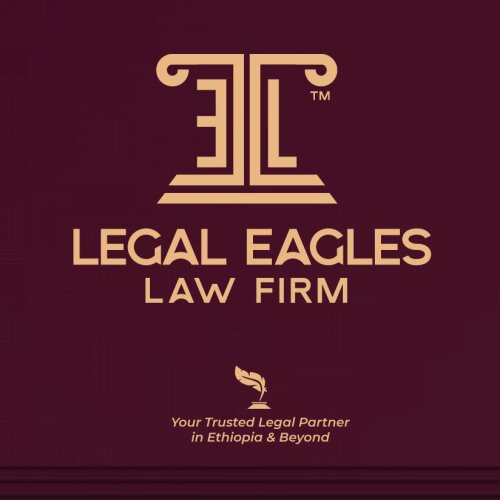Best Real Estate Contracts and Negotiations Lawyers in Ethiopia
Share your needs with us, get contacted by law firms.
Free. Takes 2 min.
Free Guide to Hiring a Real Estate Lawyer
Or refine your search by selecting a city:
List of the best lawyers in Ethiopia
About Real Estate Contracts and Negotiations
Real estate contracts and negotiations involve the legal agreements and discussions required when buying, selling, leasing, or managing properties. These contracts outline the terms and conditions under which real estate transactions occur, safeguarding the interests of all parties involved. Understanding and navigating these processes is crucial to ensure lawful and mutually beneficial arrangements.
Law in Ethiopia: A Brief Overview of Real Estate Contracts and Negotiations
Real estate law in Ethiopia is governed by a set of laws that structure the transfer, ownership, and utilization of property. The primary legal frameworks include the Civil Code of Ethiopia and related property laws, which provide detailed guidelines on property rights, contractual obligations, and dispute resolutions. The government also issues regional directives that further shape these regulations, varying slightly across different areas.
Why You May Need a Lawyer
Engaging a lawyer can be crucial in various scenarios, including:
- Finalizing property sales or purchases to ensure all legal documents are in order.
- Negotiating lease agreements to protect your rights as a tenant or landlord.
- Dealing with complex zoning laws that may affect your property usage.
- Resolving disputes arising from property boundaries or contract breaches.
- Understanding tax implications and securing proper property registration.
Local Laws Overview
The key aspects of local real estate laws in Ethiopia include:
- Property Ownership: Land in Ethiopia is owned by the state, and individuals can acquire land-use rights through leases.
- Contractual Obligations: Must adhere to the Ethiopian Civil Code requirements for legally binding agreements.
- Lease Agreements: Governed by specific provisions, including duration, renewal, and termination clauses.
- Property Registration: Mandatory registration is required to validate ownership rights and prevent disputes.
- Dispute Resolution: Often entails mediation or court involvement, as prescribed by Ethiopian legal standards.
Frequently Asked Questions
1. Can foreigners own real estate in Ethiopia?
Foreigners cannot own land but can lease property under certain conditions set by Ethiopian investment laws.
2. What comprises a legally binding real estate contract?
A binding contract includes clear identification of parties, property details, terms and conditions, and is signed by all involved parties.
3. How long can a land lease last?
Lease terms typically vary from 15 to 90 years based on the purpose and location of the property.
4. What happens if a party breaches a real estate contract?
The non-breaching party can seek remedies such as damages, contract reformation, or specific performance through legal channels.
5. Is property registration mandatory in Ethiopia?
Yes, registering a property is mandatory to establish legal recognition and prevent ownership disputes.
6. How is property tax calculated?
Property tax is determined by local standards and is usually based on property value assessments.
7. Where can I verify property ownership?
Ownership status can be verified at local land administration offices where public records are maintained.
8. Are verbal agreements enforceable?
Verbal agreements are generally not encouraged and enforceability is challenging without written documentation.
9. Can a lease be terminated early?
Yes, if stipulated within the contract terms or through mutual consent of both parties.
10. Do real estate transactions require a notary?
While not legally mandatory, having documents notarized is a common practice for added legal assurance.
Additional Resources
- Federal Attorney General of Ethiopia: Offers guidance on legal matters.
- Ethiopian Investment Commission: Provides information on real estate investment laws.
- Local Land Administration Offices: Assist with property registration and ownership verification.
- Chambers of Commerce: Can offer referrals to reputable real estate law professionals.
Next Steps
If you require legal assistance in real estate contracts and negotiations, consider the following actions:
- Consult with a qualified real estate lawyer who is familiar with Ethiopian laws and can provide specific advice.
- Gather all relevant documents related to your property and transactions for a streamlined consultation.
- Visit local land administration offices to verify any information related to property rights and registration processes.
- Contact the Ethiopian Investment Commission if your query pertains to investment-related real estate questions.
Lawzana helps you find the best lawyers and law firms in Ethiopia through a curated and pre-screened list of qualified legal professionals. Our platform offers rankings and detailed profiles of attorneys and law firms, allowing you to compare based on practice areas, including Real Estate Contracts and Negotiations, experience, and client feedback.
Each profile includes a description of the firm's areas of practice, client reviews, team members and partners, year of establishment, spoken languages, office locations, contact information, social media presence, and any published articles or resources. Most firms on our platform speak English and are experienced in both local and international legal matters.
Get a quote from top-rated law firms in Ethiopia — quickly, securely, and without unnecessary hassle.
Disclaimer:
The information provided on this page is for general informational purposes only and does not constitute legal advice. While we strive to ensure the accuracy and relevance of the content, legal information may change over time, and interpretations of the law can vary. You should always consult with a qualified legal professional for advice specific to your situation.
We disclaim all liability for actions taken or not taken based on the content of this page. If you believe any information is incorrect or outdated, please contact us, and we will review and update it where appropriate.
Browse real estate contracts and negotiations law firms by city in Ethiopia
Refine your search by selecting a city.

















